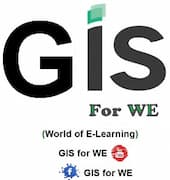Viewshed Tool in ArcToolbox
أداة مجال الرؤية
ArcMap ArcGIS
Viewshed
Tool, Visibility Toolset, 3D Analyst
Toolbox
Viewshed
Determines the raster
surface locations visible to a set of observer features.
يحدد مواقع السطح النقطية المرئية لمجموعة من معالم المراقب.
1. Input raster إدخال نقطية
The input surface
raster.
مدخلات السطح النقطية.
2. Input point or polyline observer features نقطة الإدخال أو ميزات مراقب متعدد الخطوط
The feature class that
identifies the observer locations.
The input can be point
or polyline features.
فئة المعلم التي تحدد مواقع المراقب.
يمكن أن يكون الإدخال نقطة أو ميزات متعددة الخطوط.
3. Output raster النقطية الإخراج
The output raster.
The output will only
record the number of times that each cell location in the input surface raster
can be seen by the input observation points (or vertices for polylines). The
observation frequency will be recorded in the VALUE item in the output raster's
attribute table.
النقطية الإخراج.
سيسجل الإخراج فقط عدد المرات التي يمكن فيها رؤية كل موقع خلية في البيانات النقطية لسطح الإدخال من خلال نقاط مراقبة الإدخال (أو رؤوس الخطوط المتعددة الخطوط). سيتم تسجيل تردد المراقبة في عنصر VALUE في جدول سمات الناتج النقطي.
4. Output above ground level raster (optional) الإخراج فوق مستوى سطح الأرض النقطي (اختياري)
The output above ground
level (AGL) raster.
The AGL result is a
raster where each cell value is the minimum height that must be added to an
otherwise nonvisible cell to make it visible by at least one observer.
Cells that were already
visible will have a value of 0 in this output raster.
الناتج فوق مستوى سطح الأرض النقطي (AGL).
نتيجة AGL عبارة عن خطوط نقطية حيث تكون كل قيمة خلية هي الحد الأدنى للارتفاع الذي يجب إضافته إلى خلية غير مرئية بخلاف ذلك لجعلها مرئية بواسطة مراقب واحد على الأقل.
الخلايا التي كانت مرئية بالفعل سيكون لها قيمة 0 في هذا النقطي الناتج.
5. Z factor (optional) عامل Z (اختياري)
Number of ground x,y
units in one surface z-unit.
The z-factor adjusts the
units of measure for the z-units when they are different from the x,y units of
the input surface. The z-values of the input surface are multiplied by the
z-factor when calculating the final output surface.
If the x,y units and
z-units are in the same units of measure, the z-factor is 1. This is the
default.
If the x,y units and
z-units are in different units of measure, the z-factor must be set to the
appropriate factor, or the results will be incorrect. For example, if your
z-units are feet and your x,y units are meters, you would use a z-factor of
0.3048 to convert your z-units from feet to meters (1 foot = 0.3048 meter).
عدد الوحدات x و y الأرضية في وحدة z على سطح واحد.
يضبط العامل z وحدات القياس للوحدات z عندما تختلف عن وحدات x و y لسطح الإدخال. يتم ضرب قيم z لسطح الإدخال بواسطة عامل z عند حساب سطح الإخراج النهائي.
إذا كانت وحدات x و y ووحدات z في نفس وحدات القياس ، يكون معامل z هو 1. هذا هو الافتراضي.
إذا كانت وحدات x و y ووحدات z في وحدات قياس مختلفة ، فيجب تعيين عامل z على العامل المناسب ، وإلا ستكون النتائج غير صحيحة. على سبيل المثال ، إذا كانت وحدات z الخاصة بك هي أقدام ووحدات x و y هي متر ، فيمكنك استخدام عامل z يساوي 0.3048 لتحويل وحدات z من أقدام إلى أمتار (قدم واحد = 0.3048 مترًا).
6. Use earth curvature corrections (optional) استخدام تصحيحات انحناء الأرض (اختياري)
Allows correction for
the earth's curvature.
·
Unchecked—No curvature correction will be applied. This is the
default.
·
Checked—Curvature correction will be applied.
يسمح بتصحيح انحناء الأرض.
· لم يتم التحقق منه - لن يتم تطبيق تصحيح الانحناء. هذا هو الافتراضي.
تم التحقق - سيتم تطبيق تصحيح الانحناء.
7. Refractivity coefficient (optional) معامل الانكسار (اختياري)
Coefficient of the refraction of visible light
in air.
The default value is 0.13.
معامل انكسار الضوء المرئي في الهواء.
القيمة الافتراضية هي 0.13.
اليك صفحه ومجموعة على الفيس بوك لتعلم أكثر بما يخص نظم المعلومات الجغرافية (GIS) و برنامج ArcGIS Pro من خلال هذه الروابط:





تعليقات
إرسال تعليق